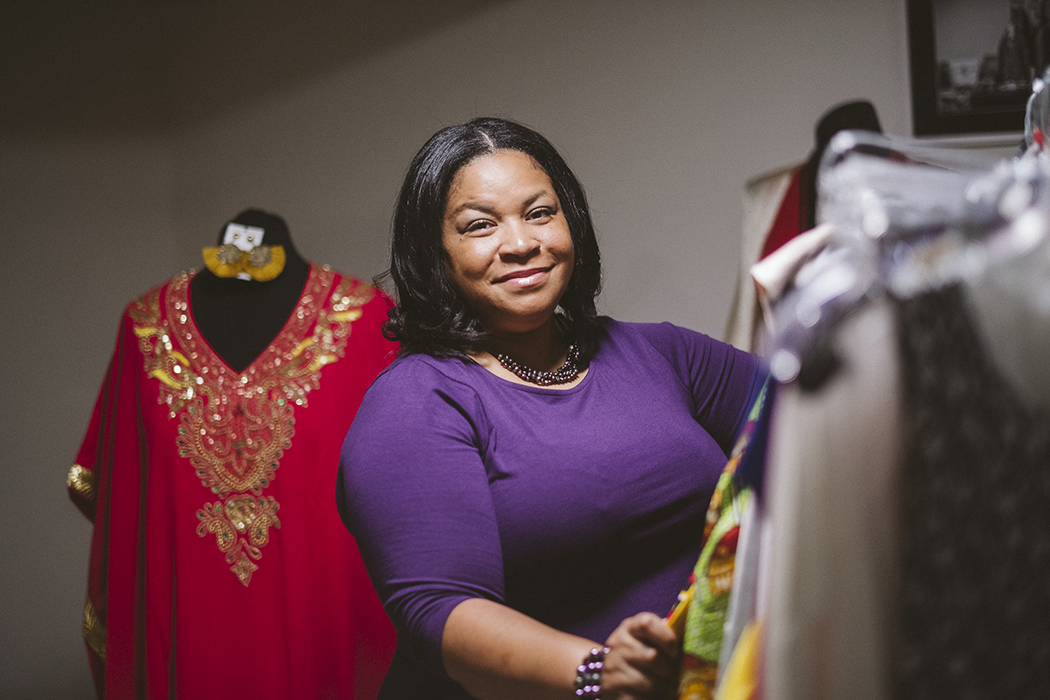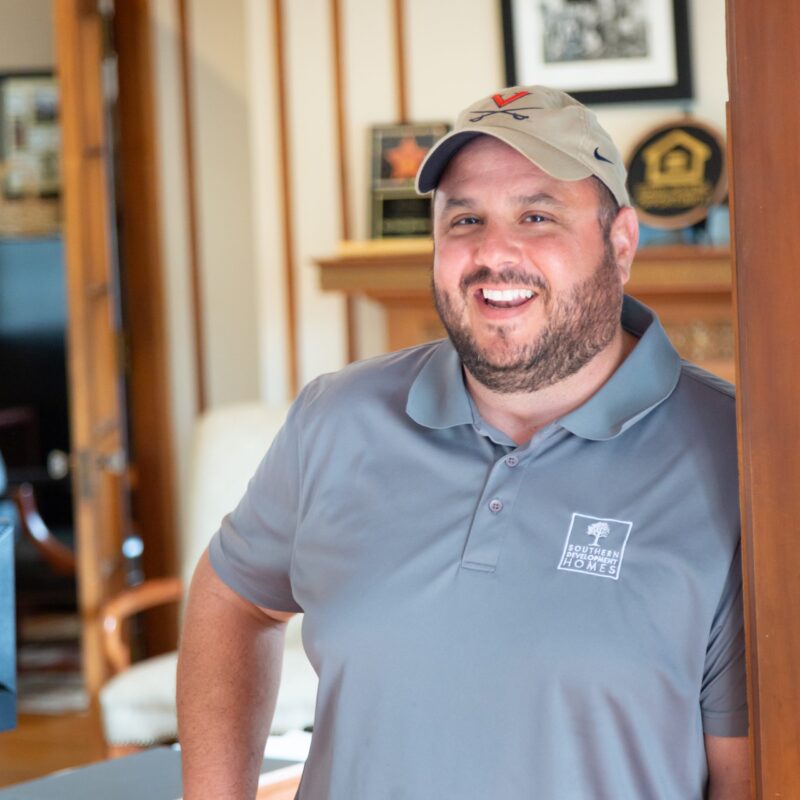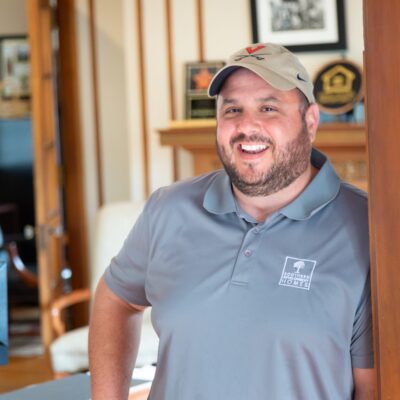The COVID-19 pandemic forced so many to change their worklife. For some, it was working from home and Zoom meetings. For others, it was losing a beloved job and seeking employment elsewhere, or even in a new field altogether.
Then there are those among us who have taken on daring career pivots willingly. Those who have thrown caution to the workforce wind and charted a new course in life.
The following is a look at five folks who’ve forsaken longtime careers for new professional paths. Whether motivated by industry pressures, new perspectives, or milestone events, the pivoters all made opportunity out of change.
“The biggest thing I would say is people shouldn’t be afraid to pivot, especially this day and age,” says Justin Ide, who jumped helmet-long into firefighting five years ago after more than two decades working as a full-time photographer. “If you’re unhappy, just do it.”

Sing it on
Lora Kelley now knows what she wants. During the 18 years she spent working as a full-time hair and makeup artist, it was in the back of her mind. And when she and her husband, local photographer Eric Kelley, founded Grit Coffee (formerly Para Coffee) in 2008, it was in the back of her mind then, too.
“I want to write songs for other people and with other people that tell a truer story,” Kelley says.
In 2017, Kelley took a sabbatical from hair and makeup—doing other people’s, that is. Along with focusing on her music career, she needed a source of income to keep her on key. Enter trauma-informed story coaching. According to Kelley, the process involves understanding what your story is and working to become the person you want to be. To write herself into story life coaching, Kelley earned certification from The Allender Center at the Seattle School of Psychology and Theology.
Music, however, remained her passion. In 2015, Kelley released her first EP (a record including more than a single but less than a full album), titled Dusty Wheels, and a second self-titled EP in 2018. Now, she’s eyeing June 10 to release her first full-length record, a pop-county and Americana hybrid titled Domystique.
Kelley, who has three kids, cites Patty Griffin, Lori McKenna, Natalie Merchant, Joni Mitchell, John Prine, and Brandi Carlile as influences. Her style sometimes calls to mind Taylor Swift’s country catalog, but Kelley hopes her songs provide a perspective popular music often misses.
“I am not falling in love and breaking up, and I’m not going out drinking on the weekends—there’s not a lot of heartbreak,” she says. “When I’m cooking food for my kids in the kitchen, I want a song that makes me feel really good about the present moment I am living in instead of pining for something else.”
So, how does one become a sought-after songwriter working for and alongside the best in Nashville? Kelley knows she has dues to pay. She figures she’ll have to keep writing songs—many of them bound to be not-so-great—and getting better.
“I’m still learning how to write them. I think my best songs are still to come,” she says.

In the Navy no more
Sherrod Fisher saw a lot as a 21-year Navyman. He did six deployments, three in the West Pacific and three in the Mediterranean. He was in the Middle East when Saddam Hussein was deposed as Iraqi dictator in 2003. He sailed
the Suez Canal. He supplied munitions for the United States’ “shock and awe” campaign during the Gulf War. He met Tom Cruise.
“I was an armament guy, aircraft armament, F-14s,” Fisher says, referencing the fighter jet featured in Cruise’s 1986 film Top Gun. “They were in [Naval Air Station] Miramar. It was something interesting.”
Fisher had seen enough after he’d served his time, though, and in 2010 he retired from the Navy. While simultaneously going through a tough divorce, he decided to go to college on the advice of a former lieutenant. He enrolled at South University in Richmond and took a few psychology classes. It might be a calling, he thought. In the Navy, he’d always been the guy people came to to talk about stuff, and he was a good listener.
Fisher completed his bachelor’s degree in 2013, about the same time his oldest daughter graduated from the University of Virginia. He visited her in Charlottesville at the end of the semester and sat in on a psych class. It further inspired him, and he decided to pursue a master’s in mental health psychology, also at South University. He completed the degree in 2016. “Those were grueling years,” Fisher says.
He landed an internship in Richmond when he graduated, but found himself jobless for several months in 2018. “I am a praying man, and that was my time to get prepared for the next step,” Fisher says. “I stepped out on faith and said, ‘Lord, if this is where you want me to go, I’ll go.’”
Fisher put in an application with the Region Ten Community Services Board and has been an outpatient clinician working with children and families ever since.
Along his journey from longtime soldier to civilian, Fisher remarried his wife in 2014. It was another significant pivot for a man accustomed to taking them on.
“When I retired and divorced in the same year, that was pretty traumatic,” Fisher says. “But there was a silver lining to all of that. It was like the beginning.”

Out of the vault
Crystal Napier had enjoyed a steady, nearly 10-year career in banking when she started work on her master’s in business administration. She completed the degree in 2013 and continued on in her career. The MBA could only improve her prospects as she climbed the banking ladder, and her future was bright.
But in 2014, she lost her steady job, and went straight to work trying to find a new banking gig. A grad school project had stuck with her: While working toward her MBA, she’d created a business plan for a fashion boutique and personal styling agency. Her husband suggested she stop the job search and pursue her passion.
“I just didn’t realize it was a sign for me to start,” Napier says. “Once I did, I just got out there.”
Napier leveraged a severance package from her previous job, personal funds, revenue from a rental property, her husband’s income, and belt-tightening to make ends meet while she struck out on her own way. Her goal? Help women—regardless of body type—dress themselves professionally and confidently without spending a fortune.
Napier launched Renee’s Boutique with a Facebook page in 2014 and a website in 2015. She traveled around Charlottesville and eventually up and down the East Coast, working directly with clients and hosting pop-up retail events. By mid-2015, she had enjoyed enough success to open a brick-and-mortar location on Water Street. The storefront stood for more than a year, but Napier pivoted again in late 2016, going back on the road for pop-ups and traveling sales and consultation.
In 2018, while six-weeks pregnant, Napier and her husband were involved in a bad car accident. “I was not able to do pop-up shops at all in 2018,” Napier says. “That was a tough year.”
She got back on her feet in 2019, and changed her business model again to focus on online sales and fashion consultations out of her home. She launched virtual styling sessions. The business model, along with several successful grant and loan applications, turned out to be one that would help her fight through the economic hardships brought on by the COVID-19 pandemic.
“It was very tight for our last year, and it’s been a lot of sacrifice,” Napier says. “It’s been a learning curve, but when you are an entrepreneur, there’s always going to be something.”

Flexibility is key
Allie Redshaw didn’t wait long to get back in the kitchen after a workplace accident took her hand in March 2017. But things weren’t the same. After an accomplished career as a chef, she was frustrated by not being able to take 100 percent ownership of her plates from start to finish.
Then, a culinary schoolmate and friend nudged Redshaw into what would become her new career. She gifted Redshaw a year of classes at Hot Yoga Charlottesville, where Redshaw says she was welcomed completely.
“I was in a fragile place,” Redshaw says. “But even if I wasn’t in a class, I loved being in the community and with the people. Everyone knew what my arm looked like, and I didn’t have to hide it. That led to learning cool ways my body could adapt.”
Redshaw was pregnant at the time of her accident but leaned hard into her yoga practice after the birth of her second child in 2017. She listened to her body and learned adaptations, she dove into the spiritual side of yoga, and she embarked on yoga instructor training. Redshaw reached out to other amputee instructors and attended a yoga retreat exclusively for amputees. She eventually discovered the limitations her right arm brought could actually be a blessing in a sport that focuses on inclusion and mindfulness.
“I liked that I could be a representation of difference,” Redshaw says. “Mindful practices…aren’t just for able-bodied people or skinny people.”
Redshaw now leads several classes per week at Hot Yoga Charlottesville and expects to teach more as people return to their regular schedules post-pandemic. Still, she retains her passion for cooking. Soon after her accident, she earned a sommelier certification to bolster her hospitality resume on the wine side, and more recently, Redshaw and husband Ian, also a well-regarded local chef, launched a catering business, Sumac Supper Club.
Never one to sit still, Redshaw also works at yoga retailer Lululemon and is nearing certification as an Ayurveda health practitioner. Ayurveda, which originated in India hundreds of years ago, is a wellness therapy combining yoga practice with a mindful approach to what we put in our bodies.
“I am so grateful that two things that have always been loves and passions of mine—food and yoga, being present in our bodies—have met in the middle to create this perfect place for me,” Redshaw says. “I am grateful for my past and where it has gotten me.”

Photos to fires
The Boston Herald had 37 staff photographers in 1999. That’s the year Justin Ide made the number 36 by leaving the coveted job.
“When I left, they all said, ‘What? Are you crazy?’” Ide remembers. “I wanted to do something else.”
The craziest thing? It was a minor career change in the scheme of things. After leaving the Herald, Ide took a job taking pictures for Harvard University. He worked at Harvard for 12 years before his wife’s career as a hospital administrator brought the couple to Charlottesville.
Ide wasn’t able to snap up a new staff photo gig in C’ville, so he did some freelance work and ended up hanging around the Crozet Volunteer Fire Department. He liked the vibe at the firehouse, but he was nearing 50 years of age, and firefighting is known as a young man’s game. Still, maybe Ide had stumbled on his new path.
“One day I was talking to a career guy—Crozet didn’t have any career guys in the fire department, but he was there for something,” Ide says. “And he said, ‘Hey, Virginia is a right to work state. If you get all the certifications, they can’t not hire you.’”
Ide earned his emergency medical technician certification and got a job with UVA’s Medic V rescue team. Then, it was on to firefighting training. Ide was 51 by the time he began; some of his fellow trainees were as young as 19. Still, he persisted. And he was eventually hired by the Waynesboro Fire Department.
“The biggest thing about it is not so much in the daily stuff. During a fire, all hell is breaking loose for the first five minutes, and then it’s fine,” Ide says. “But we would go to certain trainings and things, and the 19-year-olds could do physical exercises repeatedly without a pause in between. When you’re 50-something, you need that pause.”
With more than 20 years of professional photography under his firebelt, Ide still misses taking pictures for a living. But firefighting’s on-and-off work schedule gives him time to pursue his passion, and he’s brought some of his skills to the firehouse, as well. He’s only a few classes short of a master’s degree in public information and serves as an informal public information officer for the Waynesboro FD.
“I’ve created a good working relationship with the local media,” Ide says. “It’s been a great addition, bringing my previous job experience to the forefront in this job.”






